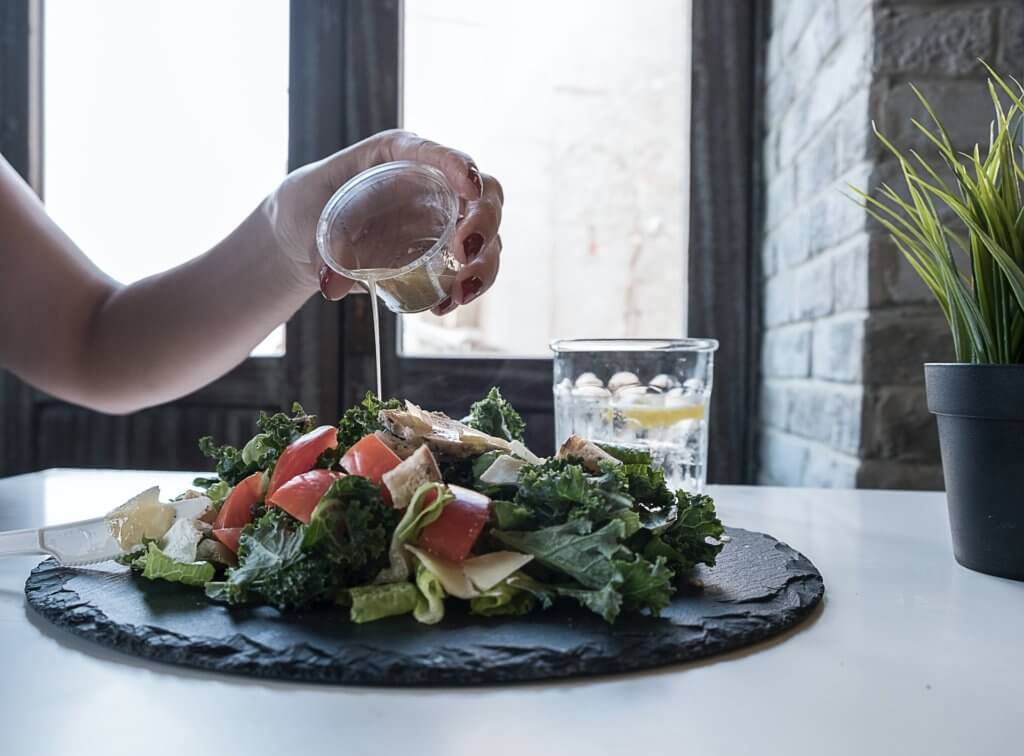ROCHESTER, N.Y. — Could the right diet successfully battle cancer? A new study finds women with late-stage breast cancer who ate a plant-based diet full of whole foods lost weight, saw their cholesterol numbers improve, had less fatigue, and simply felt better overall.
This study, conducted by a team from the University of Rochester Medical Center and Wilmot Cancer Institute, included 30 patients who were on stable treatment and could tolerate food. Stage 4 cancer patients often struggle to eat sufficient amounts of food to support their bodies, which partially explains why many of them are usually excluded from dietary studies of this nature.
In their study published in the journal Breast Cancer Research and Treatment, the researchers randomly divided participants into two groups. One received standard care, while the intervention group ate meals provided by the team for eight weeks. The diet consisted exclusively of fruits, vegetables, whole grains (including whole grain pasta), legumes, potatoes, and nuts and seeds. The participants avoided animal products like meat, dairy, and eggs, as well as all additional oils and solid fats like lard. The patients also took a daily multivitamin. This diet did not involve any calorie restriction. In fact, doctors encouraged the patients to eat as often as they wanted.
After assessing on a weekly basis, the study authors reported 95 percent compliance to these guidelines.
“It’s exciting to see that these major dietary changes were feasible, well-tolerated, and acceptable to the clinical trial participants,” says research leader Thomas M. Campbell, MD, an assistant professor of Family Medicine at URMC and an expert on using plant-based diets to improve health, in a media release.
A strictly plant-based diet that excludes all oils might seem fringe, but it actually has been a popular diet for several years. It reached peak mainstream popularity in 2016. Dr. Campbell is the co-author of the bestselling yet controversial book, “The China Study.” The work, published in 2004, suggested that women who ate more fat and animal-based foods had high blood testosterone levels and, therefore, increased risk for breast cancer.
The women started with an average BMI of 29.7, which is considered borderline obese. Those in the diet group lost one to two pounds per week over the eight weeks, with no mandated exercise. This is an interesting finding because those with breast cancer often gain weight during treatment, which comes with some risks. Too much body weight can contribute to worsening cancer outcomes, as can being underweight. Examples of foods provided in the breast cancer clinical trial include peanut soba noodles, steel-cut oatmeal, banana flax muffins, sweet potato enchiladas, and Mediterranean white bean soup.
“Although we cannot say anything yet about whether the diet can stop cancer progression from this small study, we saw preliminary results that suggest favorable changes within the body, which is very positive,” says Campbell.

For patients looking to make dietary changes, they should first consult with their oncologists or healthcare providers before making significant dietary changes, according to Campbell. Few people may know, but there are also oncology dietitians who help patients navigate food choices to best fit their clinical picture as well. Since the typical diet includes both animal and plant foods, making such a sudden change can make it difficult to stick to such a diet. This is why most dietitians will recommend that if you’re trying to change the way you eat in a notable way, to do so at a pace that feels sustainable. For some, that’s fast; for others, it’s slower.
The way we eat isn’t just a personal thing, either. Campbell agrees, saying that family support, taste preferences, and cooking ability can all play a significant role in someone’s motivation to eat better. Moreover, environmental factors like income, education, and food accessibility play significant roles, too.
As a dietitian, I find this study to be interesting, but it does come with its flaws. As stated, Dr. Campbell is a top plant-based diet advocate and educator. He is also the author of “The China Study Solution,” a practical guide to implementing China Study recommendations for better health. The China Study is very controversial within nutritional science, with many critics claiming that the research is cherry-picked. This specific study also has its limitations. One was that there were no significant changes in actual cancer markers at eight weeks. Also, since the study only lasted for this period, it’s difficult to assess any long-term implications from it, and the researchers explain that it wasn’t meant to.
At the same time, it is hard to tell whether these findings are sustainable and whether these findings impact risks of cancer progression or mortality, which would be important to explore in the future. It’s also valuable to understand that people can improve their health markers while still eating both animal and plant foods, and this study doesn’t mean that a plant-based diet is the only ticket to better health.
